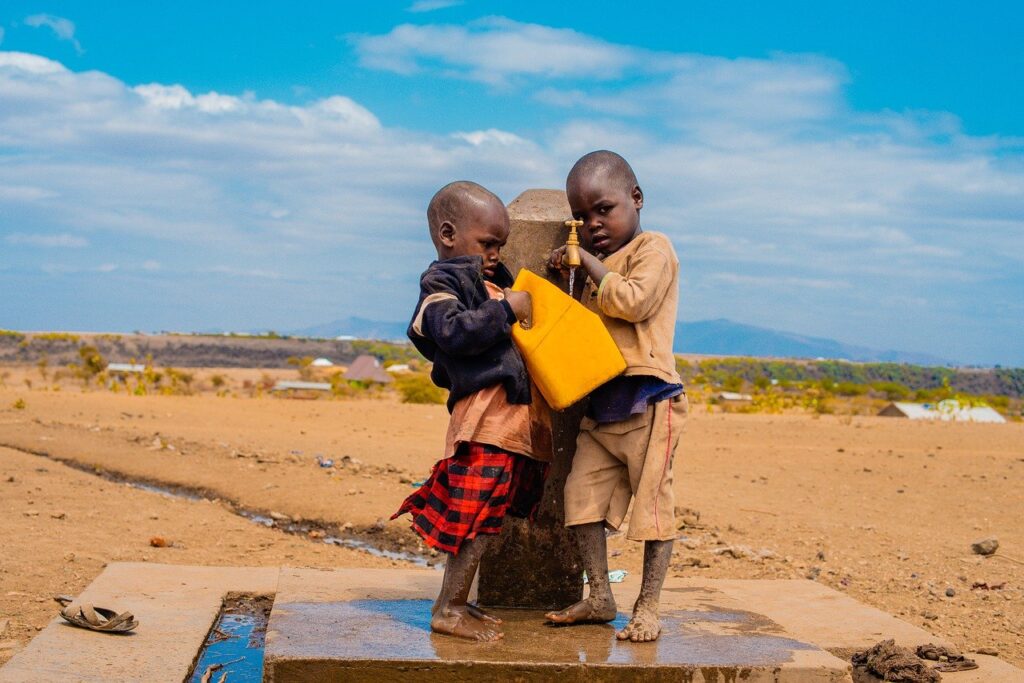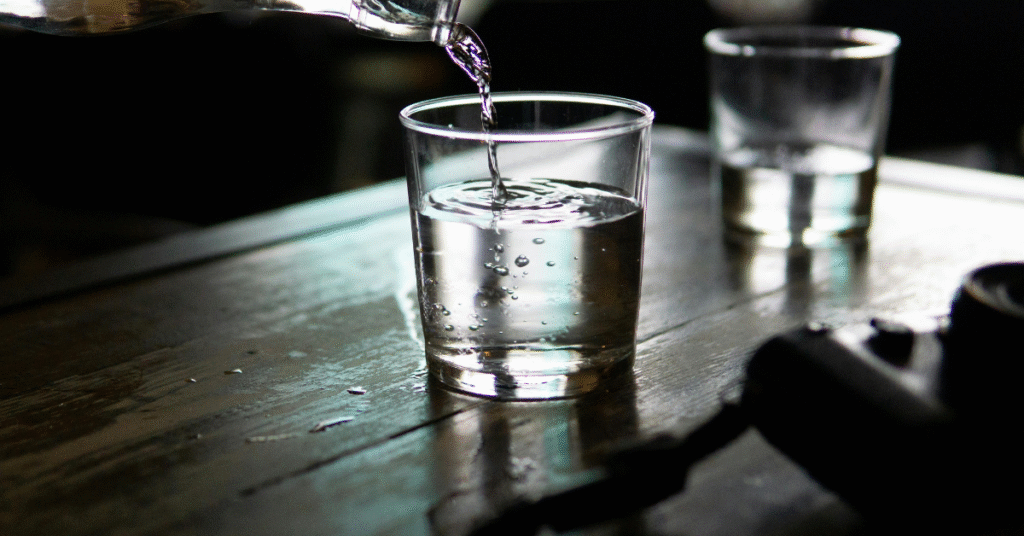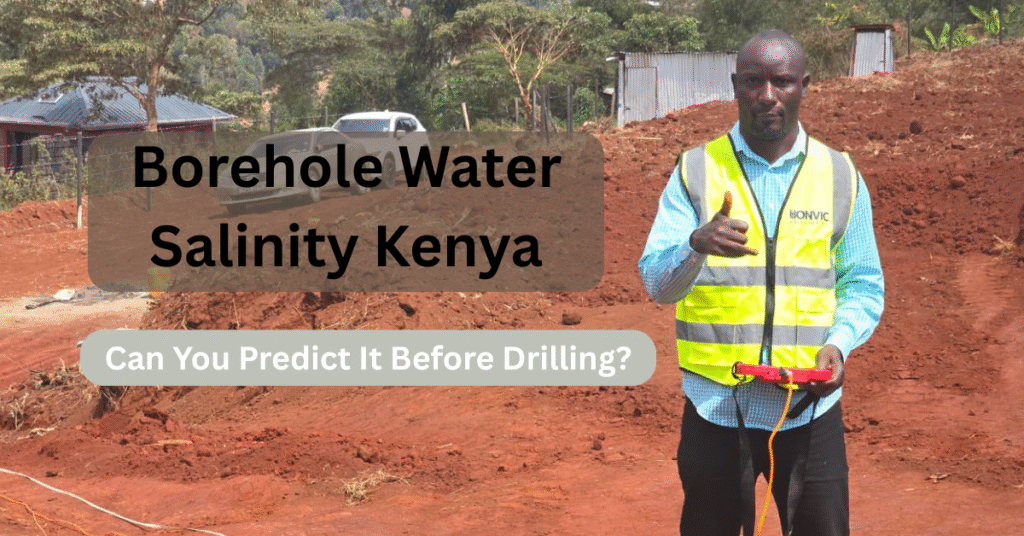After drilling a borehole, many people expect to get clean, fresh water immediately.
However, in most cases, the water comes out dirty, muddy, or cloudy. This can be concerning, but it is a normal part of the borehole development process.
Borehole water appears dirty due to fine sediments, drilling mud, and underground disturbances.
The good news is that the water usually clears with proper flushing and borehole development.
We will explain why borehole water is dirty after drilling, how long it takes to clear, and what you can do to speed up the process.
Also, read >>> What Is a Hydrogeological Survey and Why Is It Important
Why Is Borehole Water Dirty After Drilling?

Borehole water is often muddy or cloudy immediately after drilling due to several reasons:
- Drilling Residue and Mud: During drilling, fine particles of soil, rock, and drilling mud mix with water inside the borehole, making the water appear brown or cloudy.
- Disturbance of Underground Layers: The drilling process disrupts natural underground layers, allowing loose sediments to enter the water. This takes time to settle.
- Fine Sand and Silt in the Aquifer: If the borehole is not properly developed, fine sand and silt can continue entering the water, making it appear dirty.
- New Borehole Still Settling: The borehole takes time to stabilize, and natural filtration within the aquifer needs to start working effectively.
While these factors cause dirty water at first, they are not usually a sign of a serious problem.
How Long Does It Take for Borehole Water to Clear?
The time it takes for borehole water to clear depends on several factors:
- Borehole Depth: Deeper boreholes may take longer to clear since they penetrate more underground layers.
- Type of Soil and Rock Formation: Boreholes drilled in sandy or loose soil take longer to clear than those in rocky formations.
- Borehole Development and Cleaning: Water will clear faster if proper cleaning methods are used.
- Amount of Water Pumped Out: Pumping the borehole frequently helps flush out dirt and speeds up the clearing process.
In most cases, borehole water clears within a few days to a few weeks. However, further action may be needed if the water remains dirty for over a month.
Also, read >>> Do You Need Permits to Drill a Borehole in Kenya?
How to Speed Up Borehole Water Clearing

To get clean water faster, you can take the following steps:
1. Continuous Test Pumping
Test pumping involves drawing water out of the borehole at a controlled rate for an extended period. This helps remove fine sediments and allows fresh, clean water to enter.
2. Borehole Development Techniques
- Airlifting: Compressed air is blown into the borehole to remove fine sediments and improve water flow.
- Surging and Jetting: Water is forced in and out of the borehole to loosen and remove dirt.
- Brushing: A borehole brush cleans the inside walls and removes any debris.
3. Installing a Gravel Pack
A gravel pack is a layer of specially graded stones around the borehole screen. It helps filter out fine sand and prevents it from entering the borehole.
When Should You Be Concerned About Dirty Borehole Water?
While it’s normal for borehole water to be dirty at first, it should gradually improve. You should be concerned if:
- The water remains dirty for more than a month.
- There is an unusual smell or taste in the water.
- The water contains visible oil, slime, or floating particles.
- The borehole is producing excessive fine sand, damaging pumps and pipes.
These signs may indicate problems such as poor borehole construction, casing failure, or bacterial contamination. In such cases, it’s best to contact a hydrogeologist or borehole drilling expert for advice.
Also, read >>> How Deep Can a Hand Pump Work in a Borehole?
How to Improve Borehole Water Quality if It Remains Murky

If borehole water remains dirty for a long time, consider these water treatment methods:
- Filtration Systems: Install sand, cartridge, or sediment filters to remove particles.
- Settling Tanks: Store water in a large tank to allow heavy sediments to settle before use.
- Chemical Treatment: If bacterial contamination is suspected, chlorine or other safe disinfectants can purify the water.
- Borehole Rehabilitation: In some cases, additional cleaning or re-drilling may be needed to improve water quality.
Conclusion
It is usual for borehole water to be dirty after drilling, but it will eventually clear with proper borehole development and regular pumping.
Most boreholes produce clear water within a few days to a few weeks.
If the water remains dirty for too long, it could indicate a problem that needs professional attention. Proper borehole maintenance, filtration, and water treatment ensure that your borehole provides clean and safe water for years.
If you are experiencing issues with your borehole water, consult a drilling expert who can assess the situation and recommend the best solution.
You can find us on Facebook, YouTube, and TikTok for more insights and success stories.
Also, read >>> What Is an Artesian Well? Everything You Need to Know


